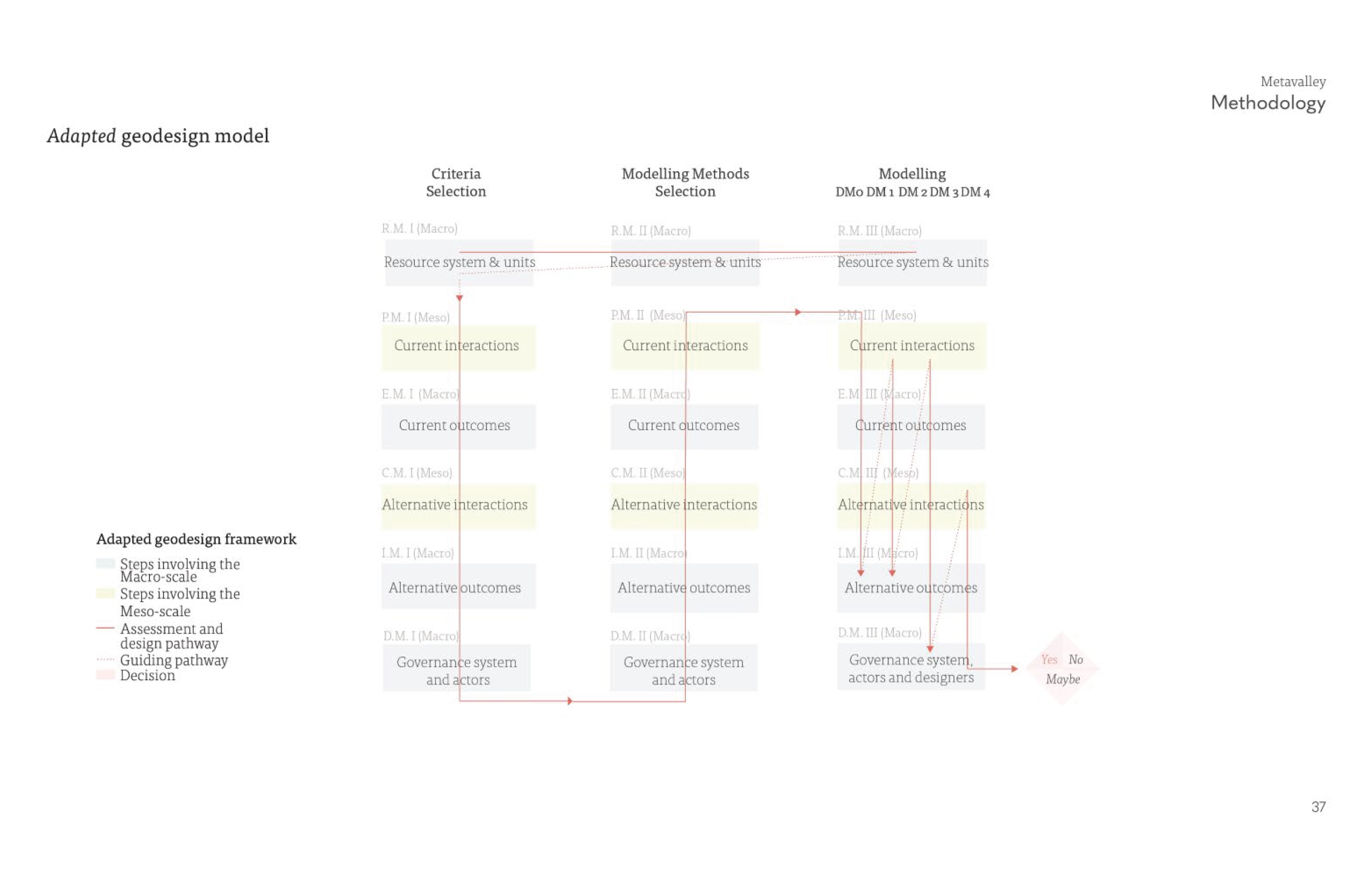Explorations of an adapted geodesign framework to integrate a regenerative approach and planning in the Metropolitan Area of the Valley of Mexico
Student: Emma Flores Herrera
Mentors: Alexander Wandl, Diego Sepulveda Carmona
Program: MSc Urbanism
Graduation date: 05/07/2019
Abstract
The thesis departed from the problem that is the lack of integration between theories like Regenerative Development and Design (RDD) and planning practices. Theories like RDD take a systematic approach towards bringing sustainable and adaptable solutions to the built environment. Theories like this are highly relevant because they embrace cities as the complex systems that they are. The thesis used the case study of the Metropolitan Area to answer to the question of how to integrate then, RD, and planning practices. It used the working hypothesis that by integrating the geodesign framework as a methodological basis and the Social-Ecological Systems Framework (SESF) as a theoretical/analytical basis, the previous could be achieved. The SESF was used to address the use of social-ecological systems, governance, and multiscalarity, while the geodesign framework was mostly used to achieve transdisciplinarity. The report then presents the methodology that was used to explore such issue. As the hypothesis indicated, the research integrated the SESF as a structured language into the geodesign framework. The SESF language helped to answer the questions that the original geodesign model asked. Throughout the process of developing the methodology, the geodesign framework was adapted to enhance its use of multiscalarity, which it actually did not possess, and its use of transdisciplinarity. The first modification improved the use of multiscalarity in the adapted framework by dividing the Resource System in two different types of scales: into system and subsystems, and into an assessment and designing area. It also developed the selection of the criteria, the methods to model and the modelling of the Macro-scale of the Resource System before than the rest of the framework The second and third modifications aimed to enhance the use of transdiscplinarity by 1) enhancing the designing amongst the stakeholders and co-designing between the stakeholders and the designers by 2) using an anticipatory-agent based modelling method in the Process Model, 3) and by integrating the Change Models of the stakeholders and geodesign team rather than selecting from them.
Subject
GeoDesign
Social-ecological system
Metropolitan Area of the Valley of Mexico
Regenerative Development and Design
Spatial-decision-support tool



